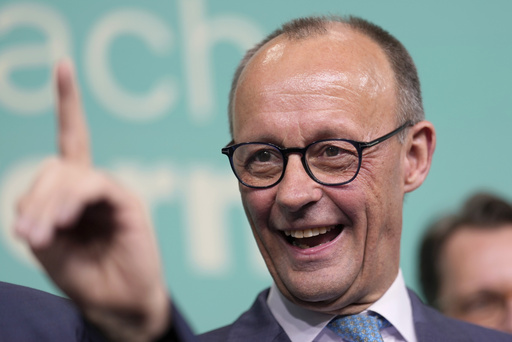FRANKFURT, Germany — The sluggishness of Germany’s economy has left many business leaders feeling frustrated due to the government’s lack of decisive action. As the national election approaches, there is a renewed sense of optimism that a viable two-party coalition could emerge, potentially led by center-right Friedrich Merz as chancellor. However, there are concerns about whether the new administration will respond effectively to the urgent requests from the business sector.
Prominent figures in the German economy have expressed their views on the necessary steps forward. Christian Klein, the CEO of SAP SE, emphasized the importance of addressing critical issues such as excessive regulation, insufficient digitalization, and economic stagnation. He advocates for a government that fosters innovation, promotes a competitive environment, and eliminates regulatory roadblocks that inhibit growth—action that needs to be taken promptly.
Representatives from leading companies like BMW AG echo these sentiments. The automaker anticipates that the new federal government will promptly enhance the business climate for any industry aiming to remain competitive globally. They seek a favorable tax framework, streamlined bureaucracy, and a shift towards policies that support business operations at the EU level.
Peter Adrian, the CEO of Triwo AG and president of the German Chamber of Industry and Commerce, pointed to the impressive voter turnout of 82.5% as a sign that a broader awareness exists regarding the critical decisions on the horizon. He notes that a shift in direction is not just desirable but essential.
Carsten Brzeski, who heads global macroeconomic analysis for ING bank, urged the incoming government to prioritize reviving the economy from its current stagnation. He warned that if the coalition focuses solely on avoiding electoral losses to the far-right AfD party, it risks failing to address vital economic challenges.
Thorsten Groeger, the leader of the IG Metall industrial union in the Lower Saxony and Saxony-Anhalt regions, expressed urgency around the need for action as companies continue to cut jobs and withdraw investments domestically. He highlighted the necessity for substantial investment in energy security, modern transportation infrastructure, high-speed internet, advanced technology, robust education programs, affordable housing, and a comprehensive welfare system.
Peter Leibinger, from the Federation of German Industries, called on political parties to recognize the gravity of the situation and act decisively to reverse the cycle of dwindling investment and growth.
Holger Schmieding, chief economist at Berenberg Bank, cautioned about the rise of populist parties, which now hold more than a third of parliamentary seats. He warned that the influence of these parties could hinder any attempts to ease the stringent constitutional debt limits at a crucial time when increased military spending and tax relief for workers and businesses are essential for Germany’s fiscal health.


